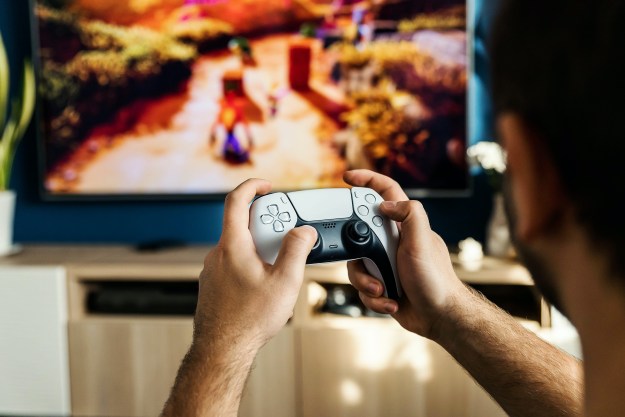A national survey conducted by Peter D. Hart Research Associates on behalf of the Entertainment Software Association finds that 35 percent of U.S. parents surveyed said they play computer and video games. The vast majority of these “gamer parents” (80 percent) report that they play games with their children, and two thirds (66 percent) feel the game-playing has brought their families closer together.
The ESA is a trade group representing the U.S. video and computer game publishers; among other things, the ESA operates an antipiracy program, fights legislation restraining video game rentals and sales it feels impinges on the constitutional rights of video game publishers, conducts business and consumer research, and promote initiatives and technologies to protect publisher’s intellectual property.
“This first-ever study of ‘gamer parents’ dramatizes the increasing and positive role that video games play in American family entertainment,” said ESA president Douglas Lowenstein. “The data provide further evidence dispelling the myth that game playing is dominated by teens and single twenty-somethings. It tells us that parents see games both as an enjoyable activity on their own, and one that allows them to engage with their children as well.”
Gosh. Put in that light, we’re sure titles likes Grand Theft Auto: San Andreas and Hitman: Blood Money represent wonderful mother-daughter bonding experiences.
The study was conducted in November 2005 and contacted 501 “nationally representative parents” with children between 2 and 17 in their households. The study defined “gamer parents” as parents who play computer and video games but not solely card games like Solitaire or children’s games.
Surely not coincident with the ESA’s other activities, other questions in the survey found gamer parents are “regular voters who have strong views about government regulation of games.” Nearly three quarters (73 percent) say they’re regular voters with a nearly-even split between the nation’s two largest political parties. Fully 85 percent of these voting parents surveyed say it’s their responsibility, not the government’s, to monitor children’s exposure to video games and their content. Further, two thirds of parents reportedly agree that the government has no business regulating video game sales and rentals.
Reading like he woke up on the cranky side of the joystick, Lowenstein added: “This research suggests that proposals to regulate video games may backfire with American voters who, unlike some elected officials, appear to fully understand that they should control the entertainment that comes into their homes.”
The study also reports that 47 percent of gamer parents are women, and, on average, spend 19 hours a month playing games with fully one third claiming to have played “games” for 20 years or longer.
(Math time: that means some of these gamer parents have probably spent more than 4,500 hours playing games. Bet they’re pretty good by now, huh?)
Editors' Recommendations
- Best video game deals: PlayStation 5, Xbox S and X, Nintendo Switch
- Every rumored video game console: Nintendo Switch 2, PS5 Pro and more
- I was a PlayStation Portal hater. Now it’s one of my go-to gaming devices
- All upcoming video game movies: release dates, development details, and rumors
- Square Enix just set a new bar for video game demos with its latest RPG


